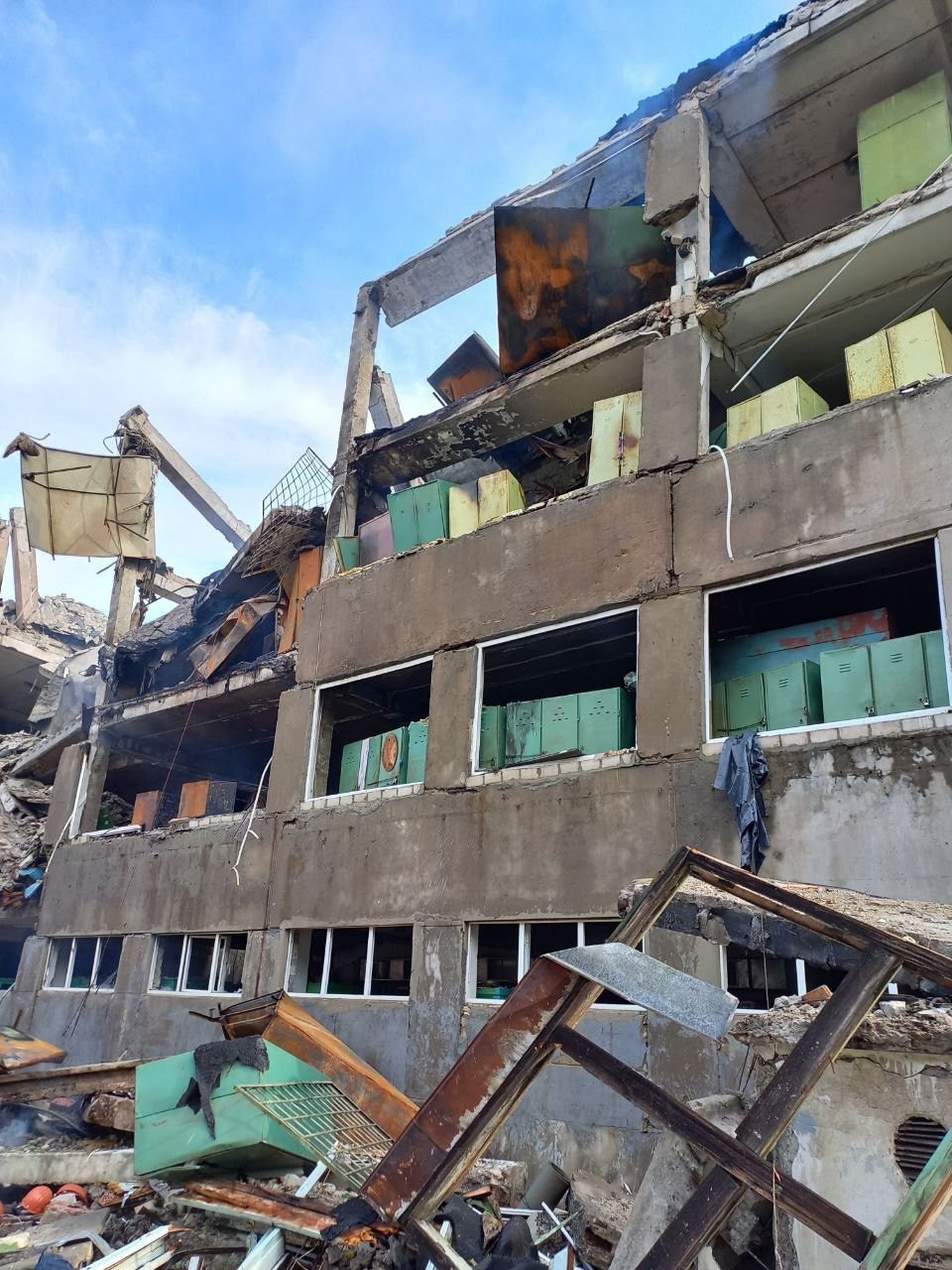News
Ukrainians displaced by war strive to hold on to life

FILE: Firefighters of the Kramatorsky district of the Donetsk region have gone (Photo: ДСНС України/Facebook)
KHARKIV, Ukraine – Struggle of people for survival continues in the war-torn Ukraine amid Russia’s ongoing war as many forcefully displaced civilians try to hold on to life during the conflict.
The people whose houses were destroyed in the intense Russian bombings around the northeastern Kharkiv – Ukraine’s second largest city where Russia have launched severe attacks since Feb. 24 – and who could not or did not want to go abroad or to the safer parts of the country, are trying to survive with the help of the state and volunteers.
Since the first days of the war, some of those who had no place to go took shelter in the Roshcha Clinic Sanatorium in Kharkiv.
Galina Chalaya, 67, who took shelter in the sanatorium, told Anadolu Agency on the occasion of World Refugee Day that she lived with her son in the village of Ruski Tyshky of the Kharkiv region before the war started.
She said they lived in the village comfortably and peacefully before the war. “We had a house. We lived in good conditions. We had everything.”
They never expected Russia to declare war on Ukraine, Chalaya said, as they thought it was “impossible” at the time.
“On the morning of Feb. 24, my son came from the market and told me that the war had begun. He said Russian tanks were outside and they were besieging the village,” Chalaya said.
Chalaya said the Russian forces attacked their village and when the Ukrainian army entered Ruski Tyshky on May 7, the village became a scene of “violent clashes.”
“A missile hit our house and it burned down. We were evacuated from the area with my son Vova,” she added.
Chalaya, an elderly woman on a walking stick with several health problems, who lost her husband years ago, said their house was completely destroyed due to the heavy bombing of their village.
Expressing the difficulties of being displaced in their own country, Chalaya said she wanted to return to the village although her house was destroyed.
“I have neither a place nor means to live,” she lamented.
The Ukrainian army regained the control of the village, Chalaya recalled, adding there were “so many violent clashes” when they left the village on May 14.
“Intense fighting currently continues in that area. Everything has burned,” she said.
Chalaya said she has only her son alive and she could not move comfortably without his help due to her health problems.
“I am sick. It is such a disease that I cannot sit. I can only lie down or walk with the walking stick.”
The Russians, she claimed, used cluster munitions during the fighting, and there were civilians who died as a result of the attacks in the village.
“I had a very close friend. While the poor woman was sitting at home, a piece of bomb ripped her from life,” she said.
Everything around destroyed
Nikolay Mikushev, 63, who also took shelter in the sanatorium, barely holding back his tears, said they lived with his wife in the town of Staryi Saltiv, which suffered the most severe wounds of the war in the Kharkiv region.
Mikushev said the heaviest clashes there started in May, adding that their grandchildren brought them to the sanatorium on May 30.
“All the bridges leading to the town were blown up. Everything around was destroyed during the clashes,” he said.
Mikushev recalled that the house they lived in became unusable, adding that they “lived in shelters without bread” for two months.
“We became refugees. We do not know what to do or where to go,” he said.
He also stressed that the attacks still continue in the town which is very close to Kharkiv, and that civilians are not allowed to enter there.
Last week, UN High Commissioner for Refugees Filippo Grandi said, “Ukraine has displaced between 12 and 14 million people, depending on how you count.”
The Ukraine war has caused “the fastest and one of the largest forced displacement crises since World War II,” according to Grandi.
More than 4,500 civilians have been killed in Ukraine since Russia launched war on Feb. 24, according to UN figures.





















